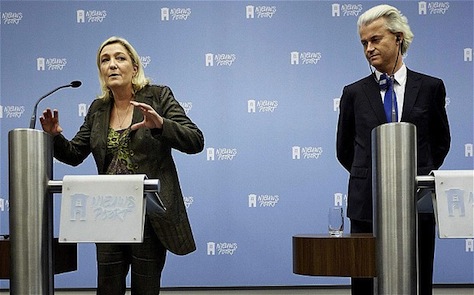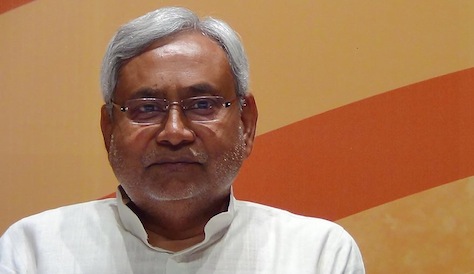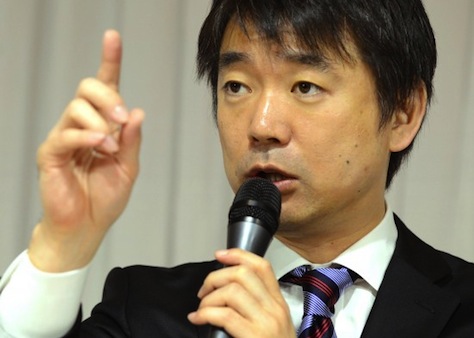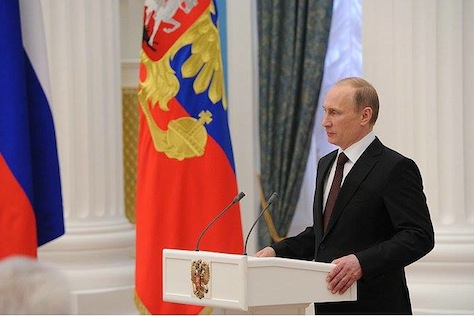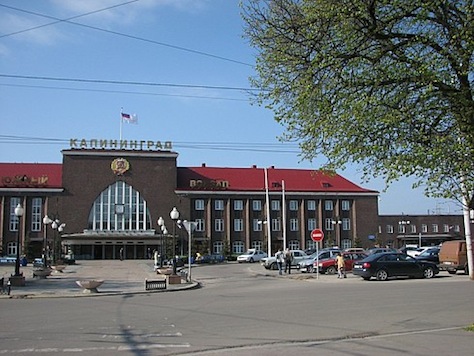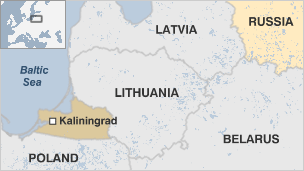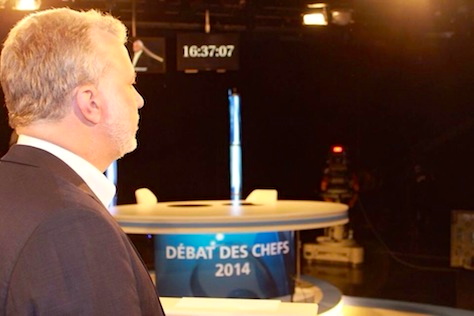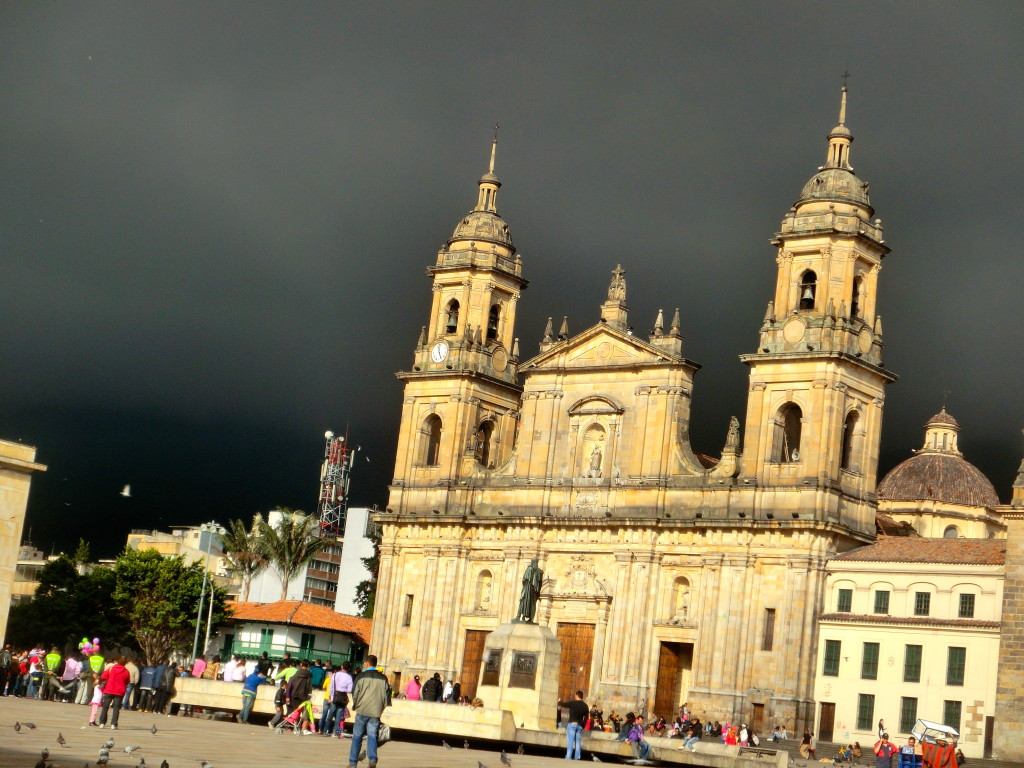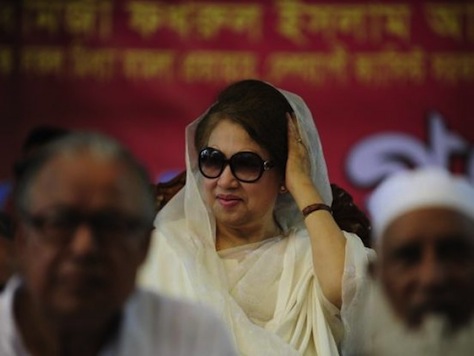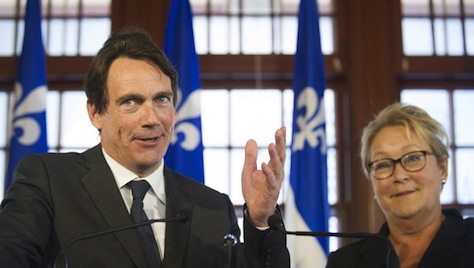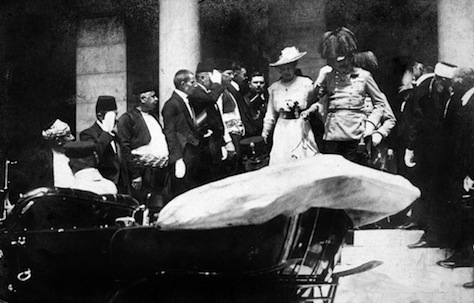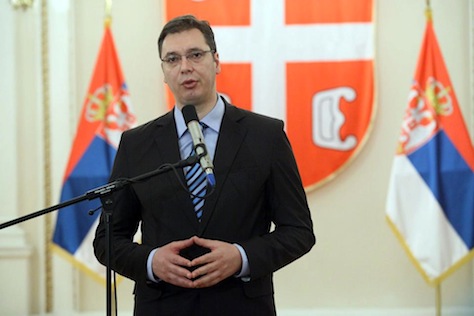The big story from Sunday’s municipal elections in France is the success of Marine Le Pen’s far-right Front national (FN, National Front), overshadowing the marquee Paris mayoral election.![]()
![]()
![]()
The far-right won the mayoral race in Hénin-Beaumont, a former mining town in the north, in a rare first-round victory, the FN came in second in Marseille, France’s second-largest city, and it led in at least six other locations as France prepares for second-round runoffs on March 30.
The result should certainly boost Le Pen in her efforts to win support in European parliamentary elections in May — and to unite the populist hard right across the continent.
According to preliminary results, the Front national won just 4.65% of the national vote. That’s a big deal because the party was running in just 597 of around 37,000 jurisdictions — it’s a massive increase from the 2008 municipal results, when the FN won around 1% and ran in just 119 constituencies.
The other narrative from Sunday’s vote is the collapse of France’s center-left — president François Hollande’s Parti socialiste (PS, Socialist Party) won 37.74% nationally, while the center-right Union pour un mouvement populaire (UMP, Union for a popular movement) of former president Nicolas Sarkozy won 46.54% nationally. The bright spot for the Socialists remains Paris, where first deputy mayor Anne Hidalgo is the slight favorite to win a runoff against former Sarkozy campaign spokesperson and ecology minister Nathalie Kosciusko-Morizet — but don’t rule out an upset next Sunday there, either.
The success in the 2014 municipal elections is just the latest chapter for Le Pen’s rebranding of the Front national in France as a slightly more moderate alternative than the party her father, Jean-Marie Le Pen, led for decades. It’s harder today to target the Front national as a xenophobic, anti-Semitic fringe, because Le Pen has focused on an agenda much heavier on euroskepticism and economic nationalism. While the Front national isn’t exactly immigrant-friendly, its position has largely converged with the UMP’s position since the Sarkozy presidency, which embraced hard-right positions on immigration and law-and-order issues. By shifting rightward, Sarkozy may have sidelined Le Pen during his presidency and co-opted her supporters, but today, Sarkozy is almost as responsible as Le Pen for bringing the Front national within the political mainstream.
With the line blurring between the UMP and the Front national, Le Pen could become the chief voice of the French right in 2017, especially if the UMP succumbs to more infighting between its right-wing leader Jean-François Copé and the more moderate former prime minister François Fillon. The next presidential election is still a long way off, but if Sarkozy doesn’t run for the presidency in 2017, Le Pen stands just as much chance as Copé, Fillon or any other UMP figure of representing the French right in the second round.
More immediately troubling for France’s political elite are the European parliamentary elections in May. Despite its breakthrough performance on Sunday, the Front national isn’t about to overrun the city halls of France. Its victory is more symbolic than substantive. But if it’s one thing to turn over your local government to Marine Le Pen, it’s a far different thing to support the Front national as a protest vote with respect to European Union policy.
Polls show that the Front national and the UMP are competing for first place in the European elections within France — the most recent Opinion Way poll from early March shows the UMP winning 22%, the FN winning 21% and the Socialists just 17%. It wouldn’t be surprising to see a wave of undecided voters support the Front national at the last moment, nor would it be a surprise to learn that polling surveys currently underestimate FN support.
Extremists on both the far left and the far right are gaining strength throughout the entire European Union. That’s perhaps understandable, given the harsh economic conditions that have plagued Europe since the last EU-wide elections in 2009. But the euroskeptic right, in particular, seems poised for a breakthrough. Nigel Farage hopes to lead the anti-EU United Kingdom Independence Party to a breakthrough performance in May, and the Freiheitliche Partei Österreichs (FPÖ, the Freedom Party of Austria) is tied for first place in polls in Austria.
But just as Le Pen hits her stride, another standard-bearer of the hard right, Geert Wilders, found himself in free fall last week after pledging to allow fewer Moroccans into the Netherlands, remarks that have launched a cascade of criticism and a handful of defections from his party: Continue reading Le Pen v. Wilders: a tale of two far-right European movements
